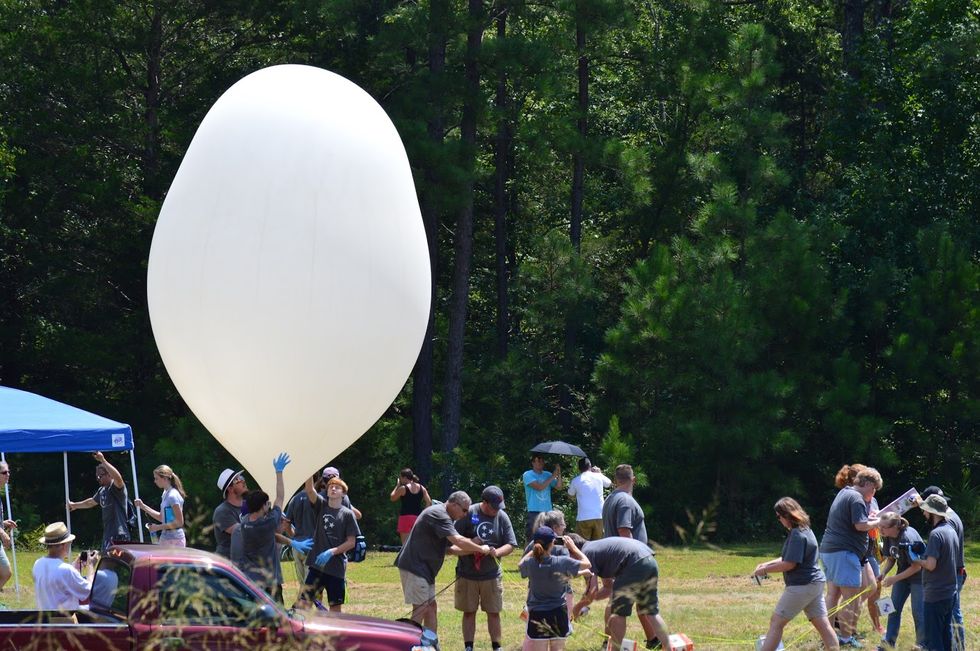We had spent the whole week in Charleston, South Carolina in preparation for the eclipse, only to find out the day before that the weather forecast was intent on cheating us of a once-in-a-life event. So we hit the road early Monday and began the three-hour drive to Greenville, South Carolina.
After a roadside lunch we walked out of a Zaxby's, otherwise known as the southern Chick-Fil-A, and down a grassy hill next to what we thought was an eclipse cult (which turned out to be a community college from Tennessee, sent by NASA to gather data) chatting excitedly and handing out matching t-shirts. Their massive latex balloon swelled in the middle of the field, itching to be released into the sky.
For several minutes we waited, craning our heads skyward to watch the progress of the eclipse through our cardboard glasses. Through sheer power of will we kept a stray cloud from blocking the view. The dimming of the world around us happened so gradually we almost didn't notice. It felt as if we were wearing sunglasses -- disorienting. Then, all at once, the eclipse reached totality, and a wave of darkness overtook us. I could hear everyone for miles around screaming in surprise, delight, terror. I didn't know what I was feeling, but it was something massive. I had expected the darkness, but not the sunset skies on every horizon, the stars and planets popping out of nowhere, the frogs and crickets prematurely beginning their nightly song. Mosquitoes came out and started to swarm our ankles, but no one paid them any mind.
My dad behind me cried out like a kid on Christmas. I was still speechless, and my body began to tremble. I could feel tears pooling in my eyes, but I didn't know why. I stared up at the sun for half a minute before I remembered my camera hanging expectedly against my stomach. I snapped as many photos as I deemed appropriate -- there's not exactly a multitude of angles from which to capture the sun in a way that would make a difference.
What anchored my attention after the first minute was not just the spectacle above me, but also the people beside me. It was a feeling I recognized:
Years ago, the four of us are sitting in a restaurant we barged into to get out of the torrential rain in summertime DC, and every table is in their own little bubble. I'm staring over my dad's shoulder at an empty table by the window, where two wine glasses still sit, mid-conversation. Then, suddenly, my phone pings. Then, my brother's phone pings. Then my dad's, my step-dad's, the woman's at the table next to us. The room floods with the same shrill note of the Amber Alert. I get a chill as I realize twenty pairs of eyes are all reading the same words in the same moment, wondering who the child must be. No matter who we are separately, in that moment we are all one.
A quote from Frank Reynolds, the ABC News anchor that covered the 1979 eclipse, had been floating around in the days before: "May the shadow of the moon fall on the world at peace." We lamented the irony of that statement, in the midst of deadly protest and an openly racist President. But at least, for a two-and-a-half-minute period, those in the path of the eclipse felt a strange peace, an appreciation for forces too big to understand.








































